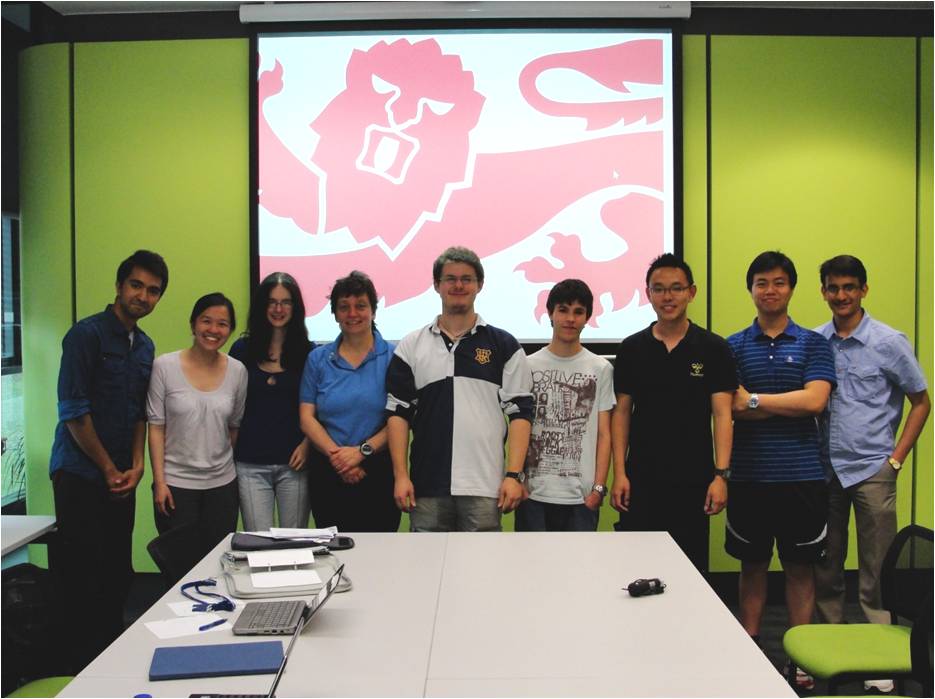Team:Newcastle
From 2010.igem.org
(→Project Description) |
(→Project Description) |
||
| Line 26: | Line 26: | ||
|- | |- | ||
|<span style="color:Silver">'''Silver:'''</span> | |<span style="color:Silver">'''Silver:'''</span> | ||
| - | |<span style="color:DimGray">Our new BioBrick, the IPTG-inducible filamentous cell formation part works, so we [[Team:Newcastle/Filamentous_Cells#Characterisation|characterised]] it and | + | |<span style="color:DimGray">Our new BioBrick, the IPTG-inducible filamentous cell formation part works, so we [[Team:Newcastle/Filamentous_Cells#Characterisation|characterised]] it and included the information on the Registry of Parts. </span> |
|- | |- | ||
|<span style="color:Goldenrod">'''Gold:'''</span> | |<span style="color:Goldenrod">'''Gold:'''</span> | ||
Revision as of 22:22, 25 October 2010

| |||||||||||||
| |||||||||||||
BacillaFilla: Fixing cracks in Concrete
Project Description
BacillaFilla, an engineered Bacillus subtilis, aims to repair cracks in concrete, which can cause catastrophic structural failure. BacillaFilla would be applied to structures by spraying onto their surface.
BacillaFilla swims deep into the cracks. Repair is effected by production of CaCO3, filamentous Bacillus subtilis cells and levan. CaCO3 expands at the same rate as concrete, making it the ideal filler. Filamentous Bacillus subtilis cells have similar tensile strength to the synthetic fibres used in fibre-reinforced concrete, and provide reinforcement. Levan glues CaCO3 and filamentous cells in place.
B. subtilis 168 sporulates, making it ideal for storage and transportation. The cells are naturally tolerant to concrete's high pH.
We designed a swarming BioBrick part for repairing B. subtilis 168's defective swrA and sfp genes and regaining motility. At the end of the crack the quorum sensing peptide subtilin triggers a co-ordinated population response from a subtilin-inducible promoter. Upregulating SR1 and rocF promotes arginine and urea production, increasing exogenous CaCO3 deposition. Over-producing YneA induces the filamentous cell phenotype, while SacB converts extracellular sucrose to levan glue.
To protect the environment our project will also include a design for a kill switch.
| | |
|---|---|
| Bronze: | From the beginning of the project, we have successfully registered the team of two instructors, six advisors and eight members. We have completed and submitted a Project Summary form, came up with ideas and shared them on our iGEM wikipedia page. We also entered information on one new BioBrick part, the yneA BioBrick into the Registry of Parts. The BioBrick for the IPTG-induced filamentous cell formation has been submitted to the iGEM Registry. |
| Silver: | Our new BioBrick, the IPTG-inducible filamentous cell formation part works, so we characterised it and included the information on the Registry of Parts. |
| Gold: | ... |
 
|
 "
"
